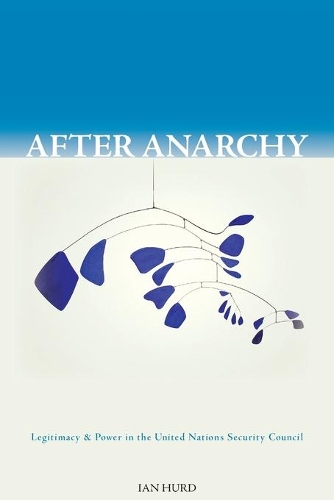
After Anarchy: Legitimacy and Power in the United Nations Security Council
(Paperback)
Publishing Details
After Anarchy: Legitimacy and Power in the United Nations Security Council
By (Author) Ian Hurd
Princeton University Press
Princeton University Press
30th September 2008
United States
Classifications
Tertiary Education
Non Fiction
Political science and theory
Peacekeeping operations
320.011
Winner of ISA International Organisation Section Chadwick F. Alger Prize 2008
Physical Properties
Paperback
234
Width 152mm, Height 235mm
340g
Description
The politics of legitimacy is central to international relations. When states perceive an international organization as legitimate, they defer to it, associate themselves with it, and invoke its symbols. Examining the United Nations Security Council, this book demonstrates how legitimacy is created, used, and contested in international relations.
Reviews
Winner of the 2008 Chadwick F. Alger Prize, International Studies Association "Scholars do not fully understand the sources of legitimacy in world affairs or how it shapes and constrains what leaders do, but this book provides important insights by looking closely at one particular site of international authority: the United Nations Security Council."--G. John Ikenberry, Foreign Affairs "Hurd explores the intricate relationship between legitimacy and authority in world politics through an empirical study of the UN Security Council. He provides readers a most thoughtful discussion of the concept of legitimacy, explaining what it is, what it is not, and how it is exercised in world politics."--J.R. Strand, Choice "Ian Hurd's new book provides a vital contribution to the discussion with a well-specified model of legitimacy that balances a subjective, psychological definition with a structural account of legitimacy's effects."--C. Cora True-Frost, Political Science Quarterly "The book succeeds in its main theoretical objective, which is to show how constructivism and rational choice can be complementary. As such, it is essential reading for those who seek a more nuanced understanding of how social facts work in international politics."--Jennifer M. Welsh, International History Review "[T]his highly sophisticated analysis adds greatly to the literature in this field."--Aidan Hehir, European Legacy "Ian Hurd has made an important contribution ot the discourse on international relations with his book."--Patrick Kubart, Journal of International Law of Peace and Armed Conflict
Author Bio
Ian Hurd is Assistant Professor of Political Science at Northwestern University.
